Qualitative Research Design: An Interactive Approach provides researchers and students with a user-friendly, step-by-step guide to planning qualitative research. It shows how the components of design interact with each other, and provides a strategy for creating coherent and workable relationships among these design components, highlighting key design issues. Written in an informal, jargon-free style, the new Third Edition incorporates examples and hands-on exercises.
Qualitative Research Design
KSh 7,700.00
Qualitative Research Design: An Interactive Approach provides researchers and students with a user-friendly, step-by-step guide to planning qualitative research. It shows how the components of design interact with each other, and provides a strategy for creating coherent and workable relationships among these design components, highlighting key design issues. Written in an informal, jargon-free style, the new Third Edition incorporates examples and hands-on exercises.
Related products
-
Constitution of Kenya
KSh 490.00Other books in the series:
- Civil Procedure Statutes
- Commercial Law Statutes
- Criminal Law Statues
- Family Law Statutes
- Labour Law Statutes
- Legal Profession
- Penal Code
- Property Law Statutes
-
Men In Love
KSh 650.00This is a book about men who love women. But it is not a collection of love stories. It is a study of the secret, erotic fantasies that men have always kept hidden, a taboo-shattering investigation that reveals the deepest, most conflicting feelings that men have about women, men and their own sexuality.
Men in Love goes beyond the socio-sexual cliché of woman seen as either madonna or whore to reveal the conflict of love and rage at the centre of men’s emotions and erotic desires. Based on thousands of candid responses from men ranging from their teens to their sixties, Men in Love – startling and shocking – will change men’s deepest feelings about their sexuality and make the women who care about them understand them as never before.
-
Reading and Understanding Research
KSh 10,500.00Ideal for students, novice researchers, or professionals, this indispensable resource serves as a road map for readers who need to analyze and apply research findings. It helps them think critically about the credibility of what they are reading by showing them how to identify problems and develop constructive questions.
Key Features
- Assumes no prior knowledge of research procedures
- Provides readers with a step-by-step format for decoding the complex language and formats used in reports and reviews
- Includes the most common formats for both quantitative and qualitative inquiry
- Offers both illustrative examples and powerful training exercises
- Gives specific attention to strategies for critically appraising reported research
- Presents completely updated references as well as an annotated bibliography
Intended Audience
This text is appropriate for both upper-level undergraduate and graduate students across the social sciences enrolled in introductory research courses as well as students in professional preparation programs.
-
The Autobiography of Malcolm X
KSh 1,695.00Malcolm X’s The Autobiography of Malcolm X was written in collaboration with Alex Haley, author of Roots, and includes an introduction by Paul Gilroy, author of The Black Atlantic, in Penguin Modern Classics.
From hustling, drug addiction and armed violence in America’s black ghettos Malcolm X turned, in a dramatic prison conversion, to the puritanical fervour of the Black Muslims. As their spokesman he became identified in the white press as a terrifying teacher of race hatred; but to his direct audience, the oppressed American blacks, he brought hope and self-respect. This autobiography (written with Alex Haley) reveals his quick-witted integrity, usually obscured by batteries of frenzied headlines, and the fierce idealism which led him to reject both liberal hypocrisies and black racialism.
Vilified by his critics as an anti-white demagogue, Malcolm X gave a voice to unheard African-Americans, bringing them pride, hope and fearlessness, and remains an inspirational and controversial figure.
Malcolm X (1925-65), born Malcolm Little in Omaha, and also known as El-Hajj Malik El-Shabazz, lost both his parents at a young age. Leaving school early, he soon became part of Harlem’s underworld, and in 1946 he was sentenced to ten years’ imprisonment. It was in prison that Malcolm X converted to Islam. Paroled in 1952, he became an outspoken defender of Muslim doctrines, formed the Organization of Afro-American Unity in 1963, and had received considerable publicity by the time of his assassination in 1965.
If you enjoyed The Autobiography of Malcolm X, you might like Nelson Mandela’s No Easy Walk to Freedom, also available in Penguin Modern Classics.
‘This extraordinary autobiography is a brilliant, painful, important book’
The New York Times -
The Ethnographic Imagination
KSh 1,200.00In this book Paul Willis, a renowned sociologist and ethnographer, aims to renew and develop the ethnographic craft across the disciplines. Drawing from numerous examples of his own past and current work, he shows that ethnographic practice and the ethnographic imagination are vital to understanding the creativity and irreducibility of experience in all aspects of social and cultural practice.
Willis argues that ethnography plays a vital role in constituting ‘sensuousness’ in textual, methodological, and substantive ways, but it can do this only through the deployment of an associated theoretical imagination which cannot be found simply there in the field. He presents a bold and incisive ethnographically oriented view of the world, emphasizing the need for a deep-running social but also aesthetic sensibility. In doing so he brings new insights to the understanding of human action and its dialectical relation to social and symbolic structures. He makes original contributions to the understanding of the contemporary human uses of objects, artefacts and communicative forms, presenting a new analysis of commodity fetishism as central to consumption and to the wider social relations of contemporary societies. He also utilizes his perspective to further the understanding of the contemporary crisis in masculinity and to cast new light on various lived everyday cultures – at school, on the dole, on the street, in the Mall, in front of TV, in the dance club.
This book will be essential reading for all those involved in planning or contemplating ethnographic fieldwork and for those interested in the contributions it can make to the social sciences and humanities.
-
Microwave Techniques: Transmission Lines
KSh 4,000.00Reading books is a kind of enjoyment. Reading books is a good habit. We bring you a different kinds of books. You can carry this book where ever you want. It is easy to carry. It can be an ideal gift to yourself and to your loved ones. Care instruction keep away from fire.
-
District Laboratory Practice in Tropical Countries
KSh 21,240.00This new edition includes an update on HIV disease/AIDS, recently developed HIV rapid tests to diagnose HIV infection and screen donor blood, and current information on antiretroviral drugs and the laboratory monitoring of antiretroviral therapy. Information on the epidemiology and laboratory investigation of other pathogens has also been brought up to date. Several new, rapid, simple to perform immunochromatographic tests to assist in the diagnosis of infectious diseases are described, including those for brucellosis, cholera, dengue, leptospirosis, syphilis and hepatitis. Recently developed lgM antibody tests to investigate typhoid fever are also described. The new classification of salmonellae has been introduced. Details of manufacturers and suppliers now include website information and e-mail addresses. The haematology and blood transfusion chapters have been updated, including a review of haemoglobin measurement methods in consideration of the high prevalence of anaemia in developing countries.
-
The Man Who Quit Money Paperback
KSh 1,000.00In 2000, Daniel Suelo left his life savings-all thirty dollars of it-in a phone booth. He has lived without money-and with a newfound sense of freedom and security-ever since. The Man Who Quit Money is an account of how one man learned to live, sanely and happily, without earning, receiving, or spending a single cent. Suelo doesn’t pay taxes, or accept food stamps or welfare. He lives in caves in the Utah canyonlands, forages wild foods and gourmet discards. He no longer even carries an I.D. Yet he manages to amply fulfill not only the basic human needs-for shelter, food, and warmth-but, to an enviable degree, the universal desires for companionship, purpose, and spiritual engagement. In retracing the surprising path and guiding philosophy that led Suelo into this way of life, Sundeen raises provocative and riveting questions about the decisions we all make, by default or by design, about how we live-and how we might live better.

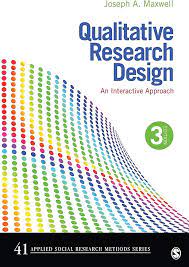


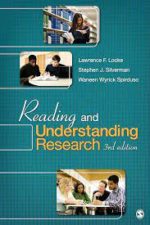
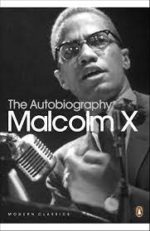
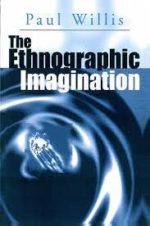


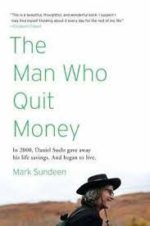
Be the first to review “Qualitative Research Design”